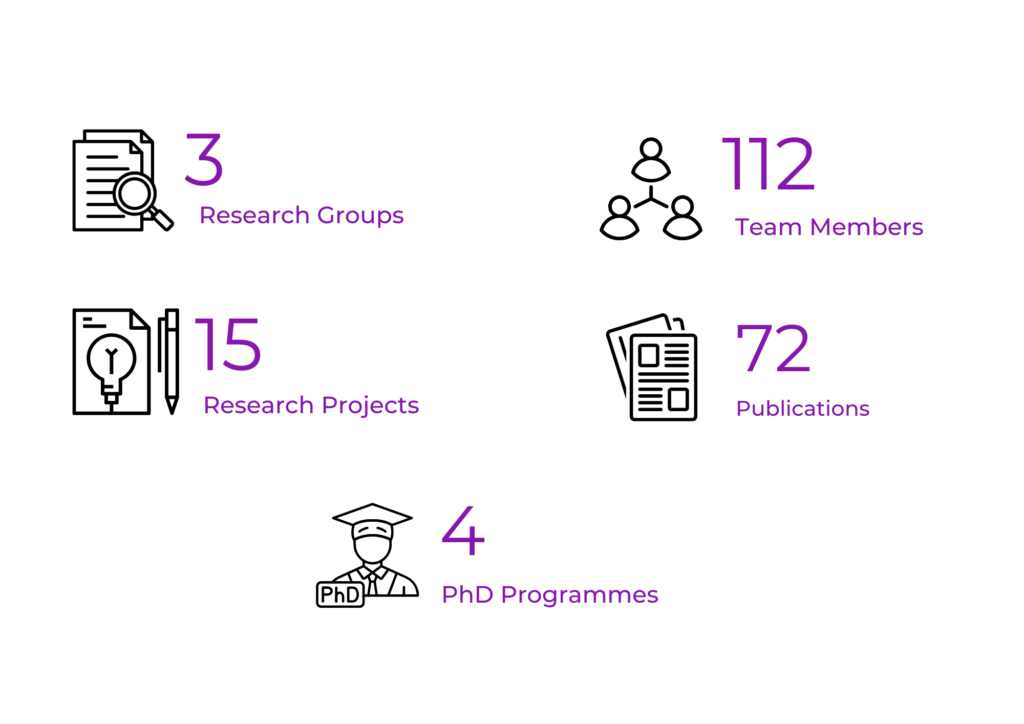CEI-Iscte is dedicated to producing top-tier knowledge and conducting research of excellence, addressing global challenges. Our approach is based on local and sectorial analyses that can be adapted and applied globally, contributing to tackling these challenges effectively. From sustainability and climate change to transnational organized crime, threats to democracy, global security, and peace, CEI’s research provides insights and potential solutions to these critical issues. In the coming years, CEI aims to reaffirm its position as a leading reference in international studies, not only in Portugal but also globally.
See our strategic plan.
Organisation
CEI-Iscte is organised into three research groups – Global Politics and Security, Democracy, Activism and Citizenship, and Sustainable Societies – linked by five regional lines: Africa, Asia, MENA (Middle East and North Africa), Latin America & the Caribbean, and Europe & Transatlantic Relations.
By reinforcing this interconnection, CEI strengthens its activities, aligning itself with Iscte’s broader agenda for contemporary social sciences. From a strategic point of view, the centre intends to strengthen its international position by expanding and consolidating its research team. This includes supporting research careers within ISCTE and leading international research projects. For 2025-2029, CEI intends to reaffirm its status as a centre of reference in International Studies, not only in Portugal, but also on a global scale.
CEI also prioritise greater integration between research and teaching, supporting postgraduate teaching activities. Based on the research groups, we focus on the following themes:
- Global Politics and Security: Focus on governance and global security challenges, including traditional threats to peace and cross-border challenges like terrorism prevention and the climate change-security nexus.
- Democracy, Activism, and Citizenship: Emphasis on multidisciplinary approaches to democracy, grassroots activism, and citizenship in diverse geographical contexts, exploring
politics from various perspectives. - Sustainable Societies: Promote innovation in understanding social-environmental change, studying manifestations, interconnections, and implications for development and socioenvironmental change.
Through these efforts, CEI aims to become an international hub for research in International Studies, attracting top researchers and contributing significantly to the global knowledge landscape.
